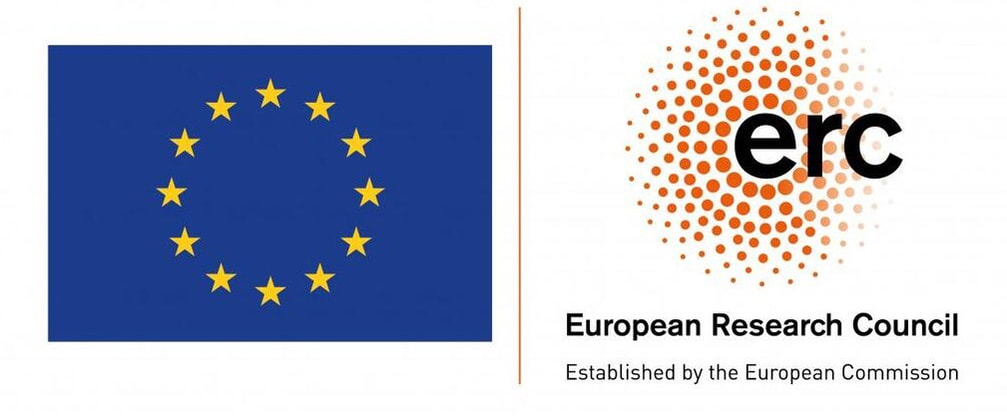Research
Every organism consumes energy and resources to live, grow and reproduce. These transformations of energy move through populations and communities, fueling biological productivity and ecosystem processes.
The Functional Ecology group aims to determine how the environment, including the interactions within and between species, regulates the rate at which organisms use energy. Our goal is to identify general rules for how organismal processes scale up to determine the functioning of communities.
Our model system is marine phytoplankton — tiny algae that are key players in ocean productivity and carbon uptake. Using this system, we combine experimental manipulations of synthetic communities and their environment with high-throughput phenotyping to study the ecological and evolutionary mechanisms that influence metabolism and related traits, such as body size, population growth and competitive ability.
The Functional Ecology group aims to determine how the environment, including the interactions within and between species, regulates the rate at which organisms use energy. Our goal is to identify general rules for how organismal processes scale up to determine the functioning of communities.
Our model system is marine phytoplankton — tiny algae that are key players in ocean productivity and carbon uptake. Using this system, we combine experimental manipulations of synthetic communities and their environment with high-throughput phenotyping to study the ecological and evolutionary mechanisms that influence metabolism and related traits, such as body size, population growth and competitive ability.
|
|
Metabolic plasticity to species interactions
Metabolic rate can vary substantially between individuals of the same species and size. Some of this variation can be explained by differences in population densities because organisms typically reduce metabolism in crowded conditions. But what drives metabolic suppression? Food certainly plays a role but we have discovered that cues from conspecifics reduce metabolism even when resources are abundant in an invertebrate model system (Lovass et al. 2020). We are currently exploring similar mechanisms of metabolic regulation within and between phytoplankton species. Understanding these mechanisms helps us predicting how populations grow and coexist because metabolism affects the ability of an organism to compete and reproduce. |
|
|
Community functioning and scaling patterns
The metabolism of organisms scales predictably with size for many species. These scaling relationships could be valuable tools to infer the metabolism of entire communities. But empirical tests are few, so it is unclear how well the rates of species in isolation predict the functioning of communities - particularly under environmental change. We are exploring two main questions: 1) how much do species interactions matter when scaling from species to communities? 2) How does environmental change modify these effects? We aim to find general principles for how species interactions and density-dependent processes affect organismal metabolism and, in turn, the productivity and stability of communities. |
|
|
Evolution in communities
Most organisms adjust their metabolism almost instantaneously in response to varying ecological conditions, e.g. the presence of conspecifics or other competitors. But how does metabolism evolve in response to competition? In a community multiple competitors can present different selective pressure so it is difficult to predict which metabolic traits are favoured. We leverage the rapid life cycle of phytoplankton to track the trajectory of species energy use and related traits (e.g. size) in multi-species communities to 1) determine how metabolism evolves and 2) explain changes in community assembly and functioning. |
Funding
2021-2024: The lab is supported by a Junior Leader Incoming fellowship to Giulia Ghedini from ”la Caixa” Foundation and from the European Union’s Horizon 2020 research and innovation programme under the Marie Skłodowska-Curie grant agreement No 847648 (LCF/BQ/PI21/11830001).
2024-2028: We are thrilled to say that we have been awarded an ERC Starting Grant 2023 for the project META_FUN: Mapping metabolic responses to understand coexistence and community functioning. The project will start in 2024 and we will be recruiting at all levels - get in touch if interested!
2021-2024: The lab is supported by a Junior Leader Incoming fellowship to Giulia Ghedini from ”la Caixa” Foundation and from the European Union’s Horizon 2020 research and innovation programme under the Marie Skłodowska-Curie grant agreement No 847648 (LCF/BQ/PI21/11830001).
2024-2028: We are thrilled to say that we have been awarded an ERC Starting Grant 2023 for the project META_FUN: Mapping metabolic responses to understand coexistence and community functioning. The project will start in 2024 and we will be recruiting at all levels - get in touch if interested!


